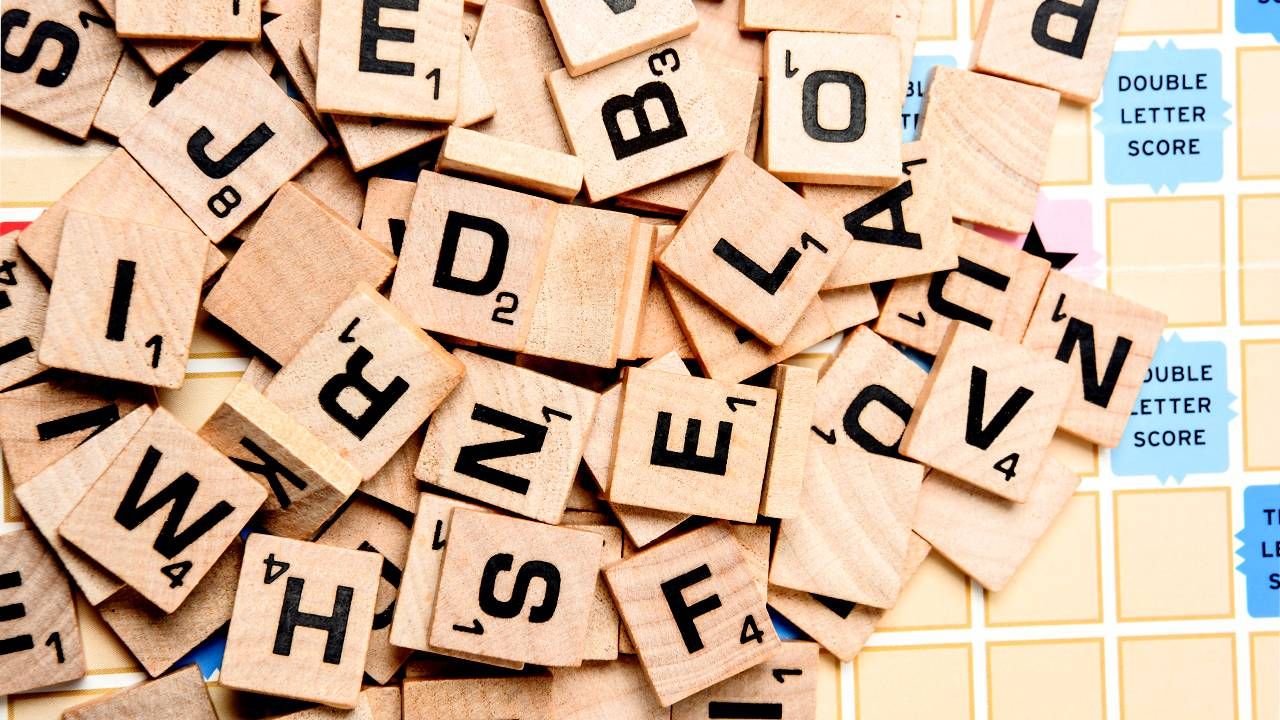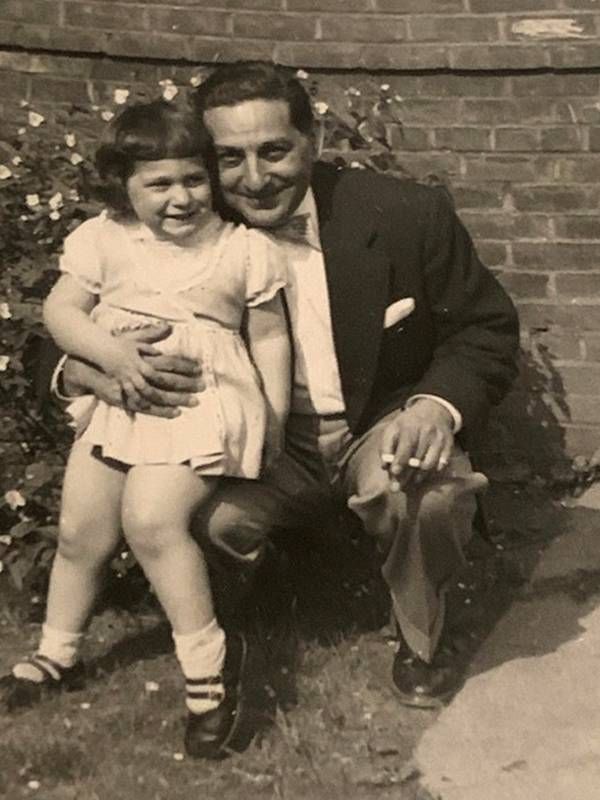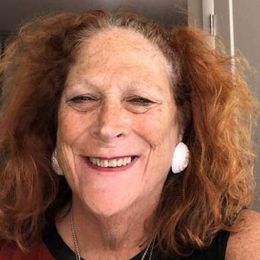Scrabble is a 14-Point Word for Love
Fond memories of a family's devotion to the popular board game
I grew up in a 1950s home filled with Sinatra music, cigarette smoke and games — gin rummy, Monopoly and Scrabble, my family's favorite by far.

My mother, a crossword puzzle addict as well as Scrabble aficionado, usually beat my father in their nightly competitions. My dad, very smart but with only an eighth-grade education, every now and then would play some amazing word and laugh at the look on my mother's face.
As a child, I'd fall asleep lulled by the sound of the wood tiles clacking away, the rhythm interrupted only by an occasional cry — BINGO! — when one of them used all their tiles in one turn for a whopping 50-point bonus.
A Lifelong Love Affair
When I was eight, my parents bought me a Junior Scrabble set for Hanukkah. Anticipating my pleasure, they were dismayed and then amused when I opened it, burst into tears and sobbed, "No, I want the grownup one."
My gift was returned to Macy's and I began my lifelong love affair with Scrabble. My mother once told me, "You have a natural gift for this game. The apple doesn't fall far from the tree." I had no idea what apples had to do with Scrabble but I smiled, pleased with the look of pride on her face.
My mother once told me, "You have a natural gift for this game. The apple doesn't fall far from the tree."
As a "word nerd," there were two reasons for my special affinity for Scrabble.
For one thing, 1952, when I entered the world writhing and shrieking, was also the year when, allegedly, the president of Macy's played Scrabble while on vacation and fell in love with the game. He placed a huge order to be sold in his department store, where Scrabble jumped off the shelves faster than you could spell the word 'success' — an 11-point word if it isn't played on a double- or triple-word space.
Originally called Lexico or Lexiko, and then Criss-Cross Words, the game, with 100 square tiles with letters and point values printed on 98 of them, was designed to be a combination of anagrams and crossword puzzles.
The second reason was that Scrabble was invented by Alfred Mosher Butts, an unemployed architect from Jackson Heights in Queens, N.Y., just a few miles from where we lived. My dad, who everyone called Allie, shared a name with Mr. Butts, the inventor of my favorite game in the universe. How cool was that?
I love Scrabble more than just about anything. And I'm not alone in my passion. Scrabble has been adored by many famous people, including several former presidents, Madonna, Justin Timberlake and even Queen Elizabeth II.
Scrabble Date Nights With Dad
"Did you and Daddy play Scrabble when I was a baby, Mom?" I asked one day, getting bored as she repeatedly shuffled her tiles on her wooden rack, trying, unsuccessfully, to find a Bingo.
Her face darkened. "We used to play when you were a little baby," she said. "But once you turned a year old, you began to cry for hours on end. I'd walk the floor with you all night and we never got to play anymore. It was a nightmare."
"Sorry, Mom," I said.
Most nights, I would play with my father while Mom sat at the table with us, often talking loudly on the marigold wall telephone. Her gravelly smoker's voice was distracting, and once I said, "Puh-lease Mom, do you have to talk on the phone now?"
"You stole my Scrabble partner," she said, trying to sound like she was making a joke. "What am I supposed to do when you and Daddy are playing?"
We played our last game when my mom was 92, still living alone, and sharp as a razor blade.
I played with her sometimes, too, more out of guilt than anything else.
One January when I was about 10, my mother began to work as a manicurist at the Cut and Curl salon, which stayed open late on Friday evenings. That became "date night" for Dad and me. After dinner, I'd pull out the Scrabble set and set it on the Formica kitchen table. Dad's nicotine-stained fingers would fly as he'd slap down his word. We'd play two games, sometimes three.
Around 9, I'd hear Mom's key in the door, and date night would be over until the following week.

Eventually, as I started doing what teenagers do (hanging out with friends, babysitting or letting boys feel me up in the Main Street Movies), I played Scrabble less often. When I went upstate to college, my mother finally got her Scrabble partner back.
A Comforting Ritual
Towards the middle of my sophomore year, Dad turned yellow and his stomach swelled to the size of a five-month pregnancy. Three months later, he was dead from pancreatic cancer.
That summer, my mother and I played Scrabble obsessively. It was comforting and familiar at a time when life was otherwise filled with sorrow. We both missed my dad desperately.
Mom moved to sunny Florida several years after I married, and then divorced, my first husband. Whenever I went to visit, we always played Scrabble. Even in her eighties, she could beat me more often than not.
We played our last game when my mom was 92, still living alone, sharp as a razor blade. "I don't have the patience anymore," she told me, moving restlessly as I shuffled the tiles.
And then, at 96, she died.
Now my best Scrabble partner is my computer app. Especially now, in this time of social distancing and staying-at-home-unless-you-need-to-go-out, I play many times a day, missing the camaraderie and excitement of a live opponent.
I think of my parents often, missing them, remembering my mother's comment and wondering, "Did I really steal her Scrabble partner?" And that, I think, is another story, about families and alliances and love, and only a little bit about Scrabble.


